Saturday, September 23 2017
This month's Blog Hop topic is: What characters in other author's books have not left your mind? Have you written a character who wouldn't leave you? Why do you think this happens?
___
 Years ago, when I was maybe 8 or 9 years old, I read Heidi by Johanna Spyri and fell so in love with Heidi I wanted to be her. I remember lying in a sunny patch of carpet wishing with all my young heart that I could be her and live on that mountain in the Alps with the Grandfather and Peter. It didn’t happen, of course. I grew up, had a family of my own and have lived some amazing adventures (although I’ve never visited the Alps, at least not yet) but I have never forgotten Heidi and Peter. I could say it was because of the beauty of the alps, but I hadn't seen the movie yet. But I think it was because I have always yearned for adventure, to go somewhere different, experience something I haven't yet seen or done and Heidi's world was about as different as my middle class, suburban neighborhood as it gets. Years ago, when I was maybe 8 or 9 years old, I read Heidi by Johanna Spyri and fell so in love with Heidi I wanted to be her. I remember lying in a sunny patch of carpet wishing with all my young heart that I could be her and live on that mountain in the Alps with the Grandfather and Peter. It didn’t happen, of course. I grew up, had a family of my own and have lived some amazing adventures (although I’ve never visited the Alps, at least not yet) but I have never forgotten Heidi and Peter. I could say it was because of the beauty of the alps, but I hadn't seen the movie yet. But I think it was because I have always yearned for adventure, to go somewhere different, experience something I haven't yet seen or done and Heidi's world was about as different as my middle class, suburban neighborhood as it gets.
 As a teenager, I read a trilogy written about a girl, then woman who lived on an island on the Maine coast. Joanna Bennett was in many ways a lot like me, but I was always more smitten with Nils Sorenson, the boy, then man who loved Joanna and stuck by her through all her bad decisions and headstrong ways until she finally realized how much he meant to her and that all she had thought she needed meant nothing without him. I loved the coast of Maine even though I didn't live there and living on an island had a wonderful allure and Nils Sorenson was the kind of boy I wanted to meet and someday marry. I was too naive to consider what it would be like to be married to a lobsterman who got up before the sun and came home smelling of fish bait, but the steadfastness of his love for Joanna appealed to me. As a teenager, I read a trilogy written about a girl, then woman who lived on an island on the Maine coast. Joanna Bennett was in many ways a lot like me, but I was always more smitten with Nils Sorenson, the boy, then man who loved Joanna and stuck by her through all her bad decisions and headstrong ways until she finally realized how much he meant to her and that all she had thought she needed meant nothing without him. I loved the coast of Maine even though I didn't live there and living on an island had a wonderful allure and Nils Sorenson was the kind of boy I wanted to meet and someday marry. I was too naive to consider what it would be like to be married to a lobsterman who got up before the sun and came home smelling of fish bait, but the steadfastness of his love for Joanna appealed to me.
___
 Since then three characters, all male, have touched my heart and imagination and stayed with me long after I put the book down. The first was Jamie Fraser (Diana Gabaldon, Outlander) – long before Sam Heughan brought him to life in the Starz series. The second was Jessie Best (Pamela Morsi. Simple Jess) and most recently, Josh Caven (Cheryl Reavis, The Marine.) I think what made these characters so memorable for me was that all of them were strong male characters who loved fiercely, cared deeply, were honorable, selfless and brave, yet vulnerable and in one way or another were able to admit to that vulnerability and open themselves up to the women they loved. Don’t get me wrong, I love reading Jack Reacher’s exploits and he’s a hard character to forget, but the Reachers of this world don’t really need anyone. Jessie Best, Nils Sorenson, James Fraser and Josh Caven were men I would like had I met them in the real world, and they embodied all the things I valued most in a soul mate, husband and lover. Since then three characters, all male, have touched my heart and imagination and stayed with me long after I put the book down. The first was Jamie Fraser (Diana Gabaldon, Outlander) – long before Sam Heughan brought him to life in the Starz series. The second was Jessie Best (Pamela Morsi. Simple Jess) and most recently, Josh Caven (Cheryl Reavis, The Marine.) I think what made these characters so memorable for me was that all of them were strong male characters who loved fiercely, cared deeply, were honorable, selfless and brave, yet vulnerable and in one way or another were able to admit to that vulnerability and open themselves up to the women they loved. Don’t get me wrong, I love reading Jack Reacher’s exploits and he’s a hard character to forget, but the Reachers of this world don’t really need anyone. Jessie Best, Nils Sorenson, James Fraser and Josh Caven were men I would like had I met them in the real world, and they embodied all the things I valued most in a soul mate, husband and lover.
___
 None of the characters I've created have ever quite left me entirely, both male and female. I think this is partly because as the author, I spent months getting to know them. I knew them better than myself in some ways. I knew what hurt them and what healed them. I felt their pain and soared with their successes because I was there as their stories were unfolding and they shared with me, whispers while I was out walking, dreams while I drowsed and outright conversations while I worked. Of my books currently available, I think the two characters who stand out in my heart and head are Matt Steele, my protagonist in The Candidate, and Dani Amico, the heroine in Iain’s Plaid, for None of the characters I've created have ever quite left me entirely, both male and female. I think this is partly because as the author, I spent months getting to know them. I knew them better than myself in some ways. I knew what hurt them and what healed them. I felt their pain and soared with their successes because I was there as their stories were unfolding and they shared with me, whispers while I was out walking, dreams while I drowsed and outright conversations while I worked. Of my books currently available, I think the two characters who stand out in my heart and head are Matt Steele, my protagonist in The Candidate, and Dani Amico, the heroine in Iain’s Plaid, for  different reasons. Matt because his personal journey included a lot of research that brought back memories of the time when I was coming of age, a time of turmoil for our country and myself in so many ways. And Dani stays with me, because her story grew out of one of my own adventures. I went out sailing to explore an island full of history, walked over paths men and women trod for over 400 years, a place I'd only read about. But Dani got to go places I could never see except in my imagination. So, perhaps she is a little piece of me, and I in some ways am a part of her. different reasons. Matt because his personal journey included a lot of research that brought back memories of the time when I was coming of age, a time of turmoil for our country and myself in so many ways. And Dani stays with me, because her story grew out of one of my own adventures. I went out sailing to explore an island full of history, walked over paths men and women trod for over 400 years, a place I'd only read about. But Dani got to go places I could never see except in my imagination. So, perhaps she is a little piece of me, and I in some ways am a part of her.
___
I’d love to hear about the characters that you’ve met in books that have stuck with you. Please comment below and I'll draw one name from a hat and send either The Candidate or Iain's Plaid for your reading pleasure.
Check out some favorite characters these authors can't leave behind.
 Anne Stenhouse Anne Stenhouse
Heidi M. Thomas
Victoria Chatham
Diane Bator
A.J. Maguire
Judith Copek
Beverley Bateman
Fiona McGier
Rachael Kosinski
Rhobin Courtright
Tuesday, September 05 2017
 I'm sorry I haven't posted in awhile. I've been kind of distressed by all the hateful things I see on the news, on Facebook and in the media. Is this MY world? MY country? Instead of just protesting what we don't like, we riot, maim and kill. Now we are tearing down statues that commemorate our history, for either good or bad, but rioting or tearing down the statues won't change the history. And it won't change the way we view either other today either. It just makes the hate and victimhood go on. I got to wondering what we need to do to make our world better. And I realized it begins with being a good parent. I'm sorry I haven't posted in awhile. I've been kind of distressed by all the hateful things I see on the news, on Facebook and in the media. Is this MY world? MY country? Instead of just protesting what we don't like, we riot, maim and kill. Now we are tearing down statues that commemorate our history, for either good or bad, but rioting or tearing down the statues won't change the history. And it won't change the way we view either other today either. It just makes the hate and victimhood go on. I got to wondering what we need to do to make our world better. And I realized it begins with being a good parent.
 No one living today is responsible for things that happened before they were born, or even while they were growing up. NO ONE! Everyone, however, is a product of how we grow up and the things we learned as we grew. I am a baby boomer. I am in no way responsible for chauvinistic attitudes that were the norm in previous generations. My dad, was a chauvinist. He, with some reason, expected my mom to do all the “women’s work” around the house. Partly because that’s how he was brought up and partly because he was the sole breadwinner in our family. My mother chose to be a stay at home wife once WWII was over and she no longer needed to replace men in machine shops. So perhaps my father’s expectations were not so outrageous. My husband was a chauvinist. He grew up in a household similar to mine and he expected me, even after I joined the work force to add to our family income, to continue doing all the chores he grew up thinking were for women only. I am not responsible for the society mores of the generations that came before me. What I am responsible for is the generation that comes after me. No one living today is responsible for things that happened before they were born, or even while they were growing up. NO ONE! Everyone, however, is a product of how we grow up and the things we learned as we grew. I am a baby boomer. I am in no way responsible for chauvinistic attitudes that were the norm in previous generations. My dad, was a chauvinist. He, with some reason, expected my mom to do all the “women’s work” around the house. Partly because that’s how he was brought up and partly because he was the sole breadwinner in our family. My mother chose to be a stay at home wife once WWII was over and she no longer needed to replace men in machine shops. So perhaps my father’s expectations were not so outrageous. My husband was a chauvinist. He grew up in a household similar to mine and he expected me, even after I joined the work force to add to our family income, to continue doing all the chores he grew up thinking were for women only. I am not responsible for the society mores of the generations that came before me. What I am responsible for is the generation that comes after me.

My son is not a chauvinist. He learned long before his teenage years how to wash dishes and fix meals. He learned how to do his own laundry, including ironing his dress shirts. He learned how to replace buttons, bake a cake, make his bed, diaper a baby, care for a pet and dozens of other chores once considered women’s work. I was responsible for that. He’s a loving, generous husband today who fully supports his wife’s career. He has walked the floor at night with his crying infants, bathed them, fed them, took them shopping, to the library and the park and tucked them in at night. Not only am I responsible, at least in part, for the man my son has become, but he and I are responsible for the kind of man his son will become and the way women are regarded in generations to come.
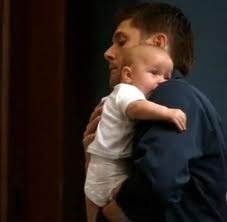
I’m not breaking my arm patting my back over my child rearing choices – what I am doing is using this as an example to show that changes in our culture and society don’t come about overnight simply because someone decides it’s more appropriate. Changes come because of the way we teach our young. Robert E. Lee, George Washington and others were not evil men – they were the product of their time. There were, undoubtedly, some very cruel and evil men who not only supported the institution of slavery, but were inhumane in their treatment of those they considered their property. But every white man or woman today is NOT responsible for the attitudes of both good and evil men of a hundred years ago and a society they had no hand in the making of. We aren’t responsible for the way people of color were treated in the sixties either. Nor should all of us be lumped together with the zealots, white supremacists and others who continue to hold those attitudes. What we are responsible for is the society we are creating for tomorrow. For our children and our childrens’ children.
 If we teach hate and intolerance, that’s what they will learn. We aren’t born bigots. We aren’t born hating others. We are taught. And that teaching has to stop. But it won’t stop because Black Lives Matter pickets and protests. It won’t stop if everyone who was born with white skin is expected to turn over everything they have to someone with black or brown skin. I realize bringing up a son who views women far differently than my husband or my father did is a lot different than bringing up children who don’t judge others by the color of their skin or the God they pray to, but it can start there. As parents we CAN change the world our children and grandchildren will live in. It won’t happen overnight, but if we teach love, tolerance and universal acceptance, it will happen. If we teach hate and intolerance, that’s what they will learn. We aren’t born bigots. We aren’t born hating others. We are taught. And that teaching has to stop. But it won’t stop because Black Lives Matter pickets and protests. It won’t stop if everyone who was born with white skin is expected to turn over everything they have to someone with black or brown skin. I realize bringing up a son who views women far differently than my husband or my father did is a lot different than bringing up children who don’t judge others by the color of their skin or the God they pray to, but it can start there. As parents we CAN change the world our children and grandchildren will live in. It won’t happen overnight, but if we teach love, tolerance and universal acceptance, it will happen.
We can’t just be color-blind, though. We have to be proactive about this. We have to talk to our  kids about racial diversity. Seems like this is often even harder than talking about sex, but it’s something we need to do. We need to make sure our children have the opportunity to meet and make friends with others of other cultures and skin color. It might mean going out of our way, but if that’s what it takes, then it’s imperative. It would have been a lot easier and quicker for me to sew that button on my son’s shirt or iron it for him than to patiently teach him how to do it and to be willing to praise his imperfect efforts and encourage him to keep trying, but he would never have learned if I hadn’t taken the time or gone out of my way to make it happen. Travel is a great way to experience other cultures and ways of living. If you don’t live where daily interaction is possible, then travel. Visit places where your children will have opportunities. kids about racial diversity. Seems like this is often even harder than talking about sex, but it’s something we need to do. We need to make sure our children have the opportunity to meet and make friends with others of other cultures and skin color. It might mean going out of our way, but if that’s what it takes, then it’s imperative. It would have been a lot easier and quicker for me to sew that button on my son’s shirt or iron it for him than to patiently teach him how to do it and to be willing to praise his imperfect efforts and encourage him to keep trying, but he would never have learned if I hadn’t taken the time or gone out of my way to make it happen. Travel is a great way to experience other cultures and ways of living. If you don’t live where daily interaction is possible, then travel. Visit places where your children will have opportunities.
And most of all, we have to teach love and respect. Love and respect for all mankind. Not just for those of a different color, but of a different faith, or ethnic background. If you want the world to be different in 25 or 50 years, start now helping your children to grow up with a new way of looking at the world they live in. This goes for parents of black children just as much as for those of white. If you teach your child they are a victim and fill them with resentment, that’s how they will grow up. Teach them instead to be proud of who they are and to believe they can be anything they want. Teach them that all white children, and all white people are not racist.
 I saw a meme on Facebook the other day that showed a sign in front of a church that read, “Love everyone, I’ll sort them out later. Signed God.” But that’s not right either. God created all of us in our rainbow of colors. He won’t be sorting anyone because He loves us all equally. For Christians – if you would be Christ in this troubled world, let’s start by loving everyone and teaching our children too. I saw a meme on Facebook the other day that showed a sign in front of a church that read, “Love everyone, I’ll sort them out later. Signed God.” But that’s not right either. God created all of us in our rainbow of colors. He won’t be sorting anyone because He loves us all equally. For Christians – if you would be Christ in this troubled world, let’s start by loving everyone and teaching our children too.
Saturday, August 19 2017
Our Round Robin Topic for August is - When you are stumped on moving a plot line forward, what do you do to reinvigorate your imagination and get your characters moving?
 What a great topic – I am eager to read all the tricks and methods other authors use to get past a roadblock. I’m sure it’s far less of a problem for those who carefully plot out their whole book before they begin to write, but every time I try to plot or outline, I end up stalled before I even begin. I’m a true pantser. I like to create characters I know well and then throw the inciting incident at them and see what they do next. Unfortunately that often leads to me wondering – what next? What a great topic – I am eager to read all the tricks and methods other authors use to get past a roadblock. I’m sure it’s far less of a problem for those who carefully plot out their whole book before they begin to write, but every time I try to plot or outline, I end up stalled before I even begin. I’m a true pantser. I like to create characters I know well and then throw the inciting incident at them and see what they do next. Unfortunately that often leads to me wondering – what next?
There are several options that I try. The first is to get out of my study and go for a walk. I take my characters and their situation with me. While I’m contemplating what next? I rehearse lengthy  dialogs between them, picture all kinds of things happening to them. It doesn’t matter how far out or impossible the situations my imagination takes me to. Most of what goes through my mind might never end up in the book, but it nearly always sparks a thought that becomes a springboard for what next? dialogs between them, picture all kinds of things happening to them. It doesn’t matter how far out or impossible the situations my imagination takes me to. Most of what goes through my mind might never end up in the book, but it nearly always sparks a thought that becomes a springboard for what next?
Another method is playing the “What If?” game. For example, I might have my hero and heroine sitting in a café with coffee steaming in front of them. They’ve been fighting and I’m not sure if this is where they make up or if they get up and go on their way with the problem unresolved. So I might ask myself, What if  an old boy/girlfriend showed up with an embrace and a kiss? Or what if the guy hauls out his wallet to drop a bill on the table before he storms out and discovers he forgot his wallet or his wallet is empty? What if she starts to get up, catches her foot on the chair and falls? What if a cop shows up to question one of them about a crime? What if a little kid at the next table pops up with a grin on his face and tells them they should be nice to each other? What if the hero spills his coffee and the scalding liquid flows into the heroine’s lap? The What if’s are endless and none might be the answer, but just starting to ask the questions and considering all the possible outcomes to each usually breaks the dam and suddenly I know exactly where this argument is going and how the scene should end or the next scene begin. an old boy/girlfriend showed up with an embrace and a kiss? Or what if the guy hauls out his wallet to drop a bill on the table before he storms out and discovers he forgot his wallet or his wallet is empty? What if she starts to get up, catches her foot on the chair and falls? What if a cop shows up to question one of them about a crime? What if a little kid at the next table pops up with a grin on his face and tells them they should be nice to each other? What if the hero spills his coffee and the scalding liquid flows into the heroine’s lap? The What if’s are endless and none might be the answer, but just starting to ask the questions and considering all the possible outcomes to each usually breaks the dam and suddenly I know exactly where this argument is going and how the scene should end or the next scene begin.
 Sometimes the roadblock needs for me to just go somewhere else and leave my characters in limbo while my brain takes a break. Go read a book, watch a movie, visit a friend, call family member for a chat. Then I come back to my story with a refreshed mind. Sometimes the roadblock needs for me to just go somewhere else and leave my characters in limbo while my brain takes a break. Go read a book, watch a movie, visit a friend, call family member for a chat. Then I come back to my story with a refreshed mind.
When all else fails, I take my problem to my brainstorming buddies. We call ourselves the Sandy Scribblers and we meet once a month to discuss our current works in progress. When I have a major roadblock, I present the  situation to my group and the what if game turns into a badminton game with ideas bouncing off everyone, growing and multiplying. Sometimes the ideas aren’t workable, or don’t fit the characters, but most of the time several possibilities come home with me and I am re-energized and eager to get back to writing with a whole army of possibilities whirling in my brain. situation to my group and the what if game turns into a badminton game with ideas bouncing off everyone, growing and multiplying. Sometimes the ideas aren’t workable, or don’t fit the characters, but most of the time several possibilities come home with me and I am re-energized and eager to get back to writing with a whole army of possibilities whirling in my brain.
When all of these options fail, I might sit back to wonder if I really had a story to begin with. Or were my characters as thoroughly thought out as they should have been? Have I missed something from the backstory that should have been there? Often I’ll find some piece to the larger picture that I’ve been ignoring and by focusing on it, the roadblock clears. What next? is the incorporation of that missing piece.
 One other habit I have as a writer is that I don’t always write in a linear fashion. Sometimes I see whole scenes or hear dialogs that I know don’t belong where I am currently in the story, so while they are fresh and vibrant in my mind, I open another file I call Bits and Pieces and just start typing, getting the whole scene or dialog down and then save it for later. Sometimes when I hit a roadblock, I visit the Bits and Pieces file and read through these various scenes or snatches of scenes and miscellaneous ideas and sometimes one of them is exactly what I need in my manuscript. If I’ve just written a thought or idea, I return to the main manuscript and try writing it. If it’s a detailed scene, I copy and paste it, then work out how to connect all the dots. And sometimes when I am at a crossroads and can’t think where to go next, I open the Bits and Pieces file and start typing something new that might or might not end up in the story, but the process encourages me and often when I return to the main document I suddenly realize I do know what next? One other habit I have as a writer is that I don’t always write in a linear fashion. Sometimes I see whole scenes or hear dialogs that I know don’t belong where I am currently in the story, so while they are fresh and vibrant in my mind, I open another file I call Bits and Pieces and just start typing, getting the whole scene or dialog down and then save it for later. Sometimes when I hit a roadblock, I visit the Bits and Pieces file and read through these various scenes or snatches of scenes and miscellaneous ideas and sometimes one of them is exactly what I need in my manuscript. If I’ve just written a thought or idea, I return to the main manuscript and try writing it. If it’s a detailed scene, I copy and paste it, then work out how to connect all the dots. And sometimes when I am at a crossroads and can’t think where to go next, I open the Bits and Pieces file and start typing something new that might or might not end up in the story, but the process encourages me and often when I return to the main document I suddenly realize I do know what next?
Want to know what some of my author friends do when they hit a roadblock? Check them out.
 Diane Bator Diane Bator
A.J. Maguire
Anne de Gruchy
Victoria Chatham
Marie Laval
Judith Copek
Dr. Bob Rich
Helena Fairfax
Fiona McGier
Heather Haven
Beverley Bateman
Rhobin Courtright
Tuesday, August 08 2017
My summer travels
 Every year since I moved to St Augustine I’ve returned to New England for six weeks to visit family and catch up with old friends. For the past three years, three of those weeks have been spent on Bailey Island in Maine, in a cute little cottage overlooking the ocean at the northern edge of Casco Bay. The time there starts with a bang, quite literally, for Independence Day. I get to watch fireworks from my deck from towns and cities all along the coastline as well as a spectacular display over the cove right down the street. My son and his family were up for a few days and this year we took a side trip to Fort Popham which happens to have a lovely beach nearby. For those of you who think the Maine coast is all rocks and ledges, there are many lovely fine sand beaches and Popham is one of them. I had my annual feasts of lobster fresh from the icy waters of Maine when they are at their succulent best, and lunches of Maine Gulf shrimp, another treat I never get in Florida. It was a lovely, relaxing visit. Every year since I moved to St Augustine I’ve returned to New England for six weeks to visit family and catch up with old friends. For the past three years, three of those weeks have been spent on Bailey Island in Maine, in a cute little cottage overlooking the ocean at the northern edge of Casco Bay. The time there starts with a bang, quite literally, for Independence Day. I get to watch fireworks from my deck from towns and cities all along the coastline as well as a spectacular display over the cove right down the street. My son and his family were up for a few days and this year we took a side trip to Fort Popham which happens to have a lovely beach nearby. For those of you who think the Maine coast is all rocks and ledges, there are many lovely fine sand beaches and Popham is one of them. I had my annual feasts of lobster fresh from the icy waters of Maine when they are at their succulent best, and lunches of Maine Gulf shrimp, another treat I never get in Florida. It was a lovely, relaxing visit.
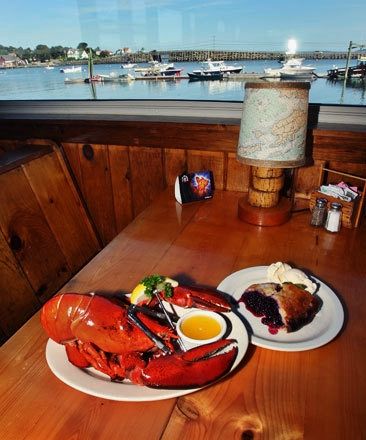 I returned to Massachusetts to take care of some of my dad’s business. He’s been in nursing care for the last year following a nasty fall and broken bones last July, and now is eligible for Medicaid, but that application process can be difficult so my sister and I consulted an advocate to help us get it right. It was also good to have time to visit with him and remember some of the good times we’ve had over the years. I returned to Massachusetts to take care of some of my dad’s business. He’s been in nursing care for the last year following a nasty fall and broken bones last July, and now is eligible for Medicaid, but that application process can be difficult so my sister and I consulted an advocate to help us get it right. It was also good to have time to visit with him and remember some of the good times we’ve had over the years.
Now I’m at the family place at Bow Lake in New Hampshire. We own a small island there which has a lot of charm . . . and a lot of drawbacks. No running water or phone, no hot showers and an outhouse, but it is all ours and we – my kids, my grandkids, my sister and her daughter and some of my inlaws all arrive here for one week each summer. Cousins get to spend time with each other, playing, swimming, boating, having sleepovers in each other’s tents and telling stories and making s’mores around a campfire every night. My children, close in heart, but separated  by distance most of the year, get to enjoy each other’s company and talk about everything from kids to politics, to sports and work and life in general and somehow the fact that we all have to sleep in tents and treat the tiny camp like a clubhouse doesn’t matter so much. Every year there’s a theme to our week, usually a holiday we never get to enjoy together. We’ve celebrated Valentine’s Day with little red mailboxes by every tent and the kids had fun making and delivering their messages. We’ve had Easter egg hunts and dressed up and gone trick or treating at everyone’s tent, too. This year is April Fools. This morning I woke up to find it had snowed right in by distance most of the year, get to enjoy each other’s company and talk about everything from kids to politics, to sports and work and life in general and somehow the fact that we all have to sleep in tents and treat the tiny camp like a clubhouse doesn’t matter so much. Every year there’s a theme to our week, usually a holiday we never get to enjoy together. We’ve celebrated Valentine’s Day with little red mailboxes by every tent and the kids had fun making and delivering their messages. We’ve had Easter egg hunts and dressed up and gone trick or treating at everyone’s tent, too. This year is April Fools. This morning I woke up to find it had snowed right in 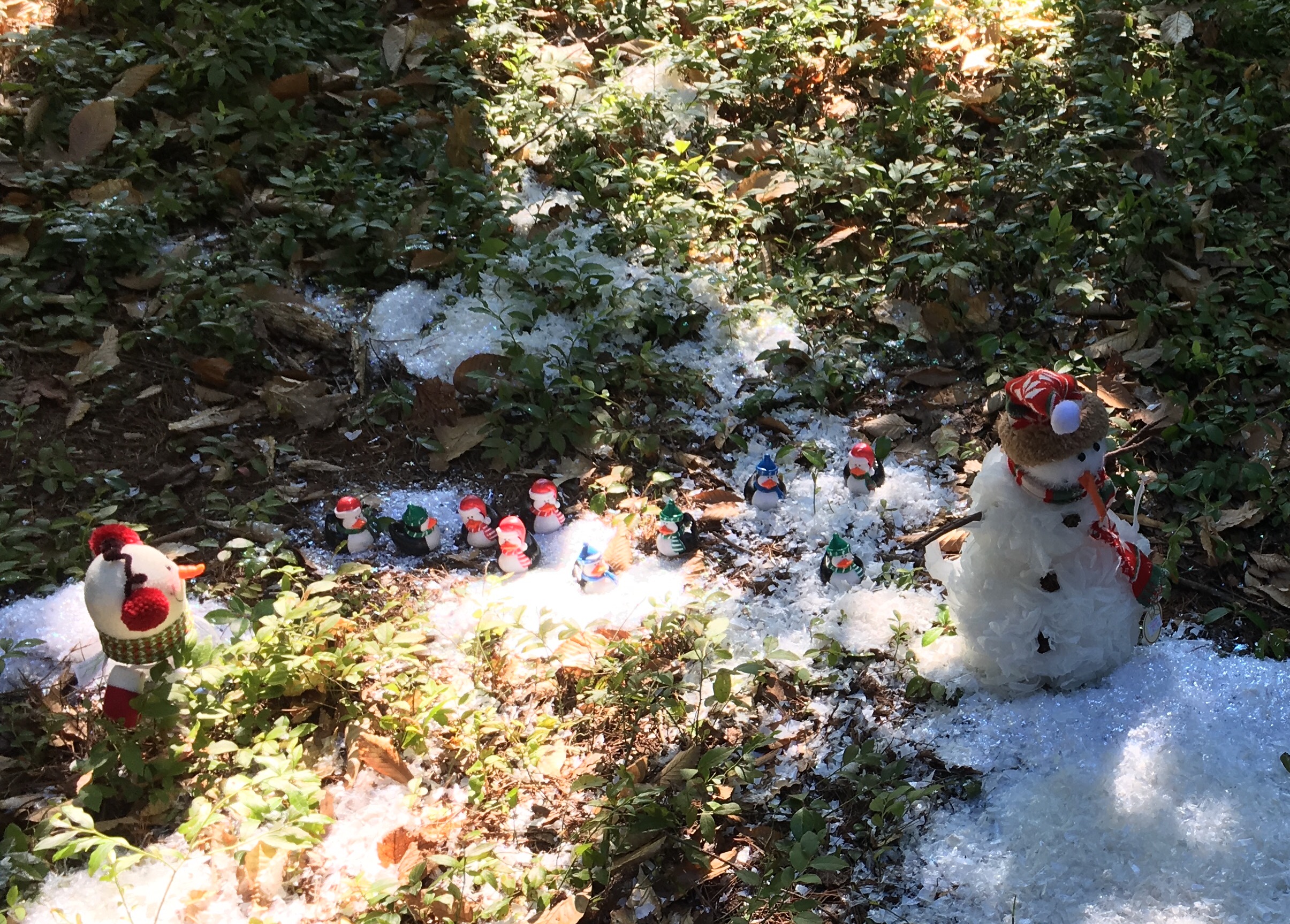 front of my tent and there were little snowmen, snowballs and duckies with woolen hats and scarves. Who knows what will happen the rest of the week. front of my tent and there were little snowmen, snowballs and duckies with woolen hats and scarves. Who knows what will happen the rest of the week.
Next week my summer journey will be over and I’ll head back to St Augustine. It will be good to be home once the long drive is over, but it’s always worth the trip. Family time always is.

Tuesday, August 01 2017

Trusting Will is ON SALE from August 1st to 15th - just 99¢ on all e-book platforms
Amazon Barnes & Noble Kobo iBooks Google Play
TRUSTING WILL Brianna is a war widow with no intention of falling for Will Cameron no matter how charming he is. He’s just another bigger-than-life hero who puts his life on the line every day. Loving him could break her heart all over again.
.
.
.
.
.
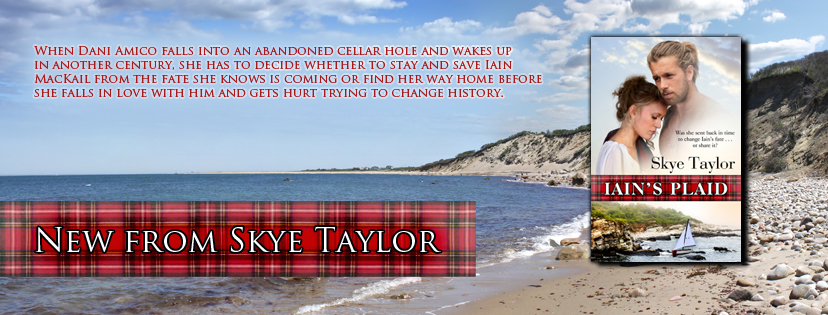
Iain's Plaid has been chosen to compete in the AllAuthor August Cover Contest - We'd love to have you pop on over and give it a vote: https://allauthor.com/cover-of-the-month/824/
Hope everyone is having a great summer - next week, I'll share some of my summer adventures with you.
Saturday, July 22 2017
 July Round Robin topic: Whatever genre you write, do you have a different one that you love to read? What do you think attracts readers to certain genres? July Round Robin topic: Whatever genre you write, do you have a different one that you love to read? What do you think attracts readers to certain genres?
 Consensus opinion when I first started writing was to stick to one genre, at least until you were established. But then, I always did march to a different piper. The first book I wrote, currently abiding buried in a file folder somewhere on yellow lined paper, wasa regency romance – that was what I was mostly reading at the time. My next effort was mainstream and the one following that was a time travel. I’ve also written contemporary romance and historical romance and a few short stories that fit none of those genres. My published genres include mainstream – political intrigue, a Consensus opinion when I first started writing was to stick to one genre, at least until you were established. But then, I always did march to a different piper. The first book I wrote, currently abiding buried in a file folder somewhere on yellow lined paper, wasa regency romance – that was what I was mostly reading at the time. My next effort was mainstream and the one following that was a time travel. I’ve also written contemporary romance and historical romance and a few short stories that fit none of those genres. My published genres include mainstream – political intrigue, a 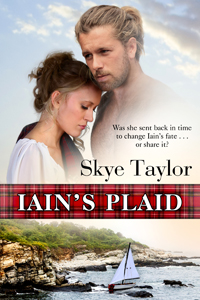 contemporary romance series and one historical time travel romance. I have a straight historical romance in progress and another more mainstream novel as well. contemporary romance series and one historical time travel romance. I have a straight historical romance in progress and another more mainstream novel as well.
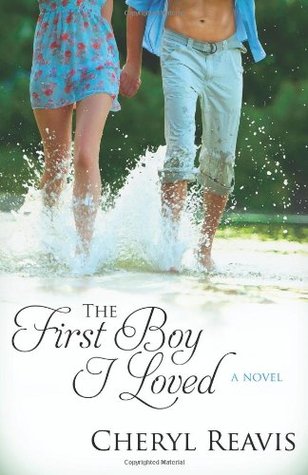 What genres do I read? I’m always a sucker for a good love story, but I’m kind of picky. I detest billionaires and models and I’m not into romances that are thinly veiled vehicles for sex. I’ve worn out any interest in innocent young heroines, but perhaps that’s my age showing. One of the most endearing romances I’ve read recently featured a heroine who was my age – a second chance at love long after she’d ever expected it. But my reading is far more eclectic than my writing. What genres do I read? I’m always a sucker for a good love story, but I’m kind of picky. I detest billionaires and models and I’m not into romances that are thinly veiled vehicles for sex. I’ve worn out any interest in innocent young heroines, but perhaps that’s my age showing. One of the most endearing romances I’ve read recently featured a heroine who was my age – a second chance at love long after she’d ever expected it. But my reading is far more eclectic than my writing.

I love a good suspense. I read lots of military and history, both non-fiction and fiction. I’m a huge MitchRapp and Jack Reacher fan and I follow the exploits of John Corey and Oliver Stone, by Nelson Demille and other similar action adventure series. I love following a series because once the author has made me fall in love with a hero/heroine, I want to see more of them. Another series I enjoyed was Men in Blue by W.E.B. Griffin, focused on the Philadelphia Police Department.
The third part of this month’s topic is: What attracts people to a particular genre? Everyone is different, living different lives, coming from different experiences and sometimes wishing for adventures they might never have personally, and for every wish, dream or yearning, there’s a genre.
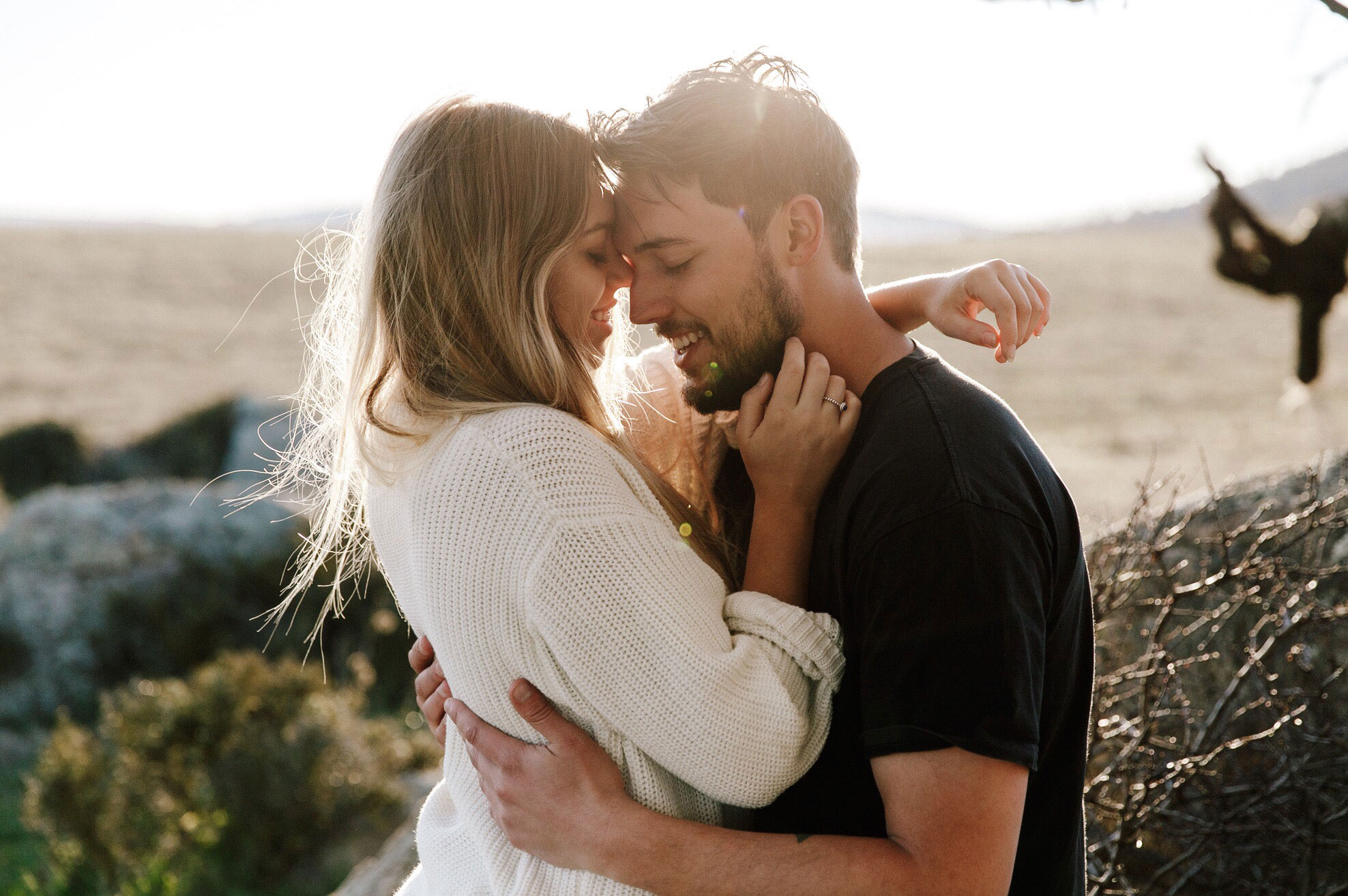
For people who love romance, both with their significant other and in the world around them, reading about a hero and heroine falling in love, overcoming the obstacles and finding their happyever after leaves a warm fuzzy feeling. Most of us will only fall in love once or twice in our lives, but reading romance lets you fall in love over and over again. And even here, there are dozens of subgenres to pick from: do you like firefighters? Cowboys? Highland warriors or modern military figures? Law Enforcement? Paranormal: witches and warlocks, vampires or werewolves. Some romance readers just want something sweet, some want spicy. Personally, I already know how Tab A fits into Slot B so I don’t want to read all the physical details – I just want the emotional roller coaster that goes with lovemaking.
 Action adventure gives even those of us who never even come close to being heroes a chance to admire those who are and share the adrenalin pumping action. And who doesn’t admire the dedication, drive and perseverance that it takes to become a Navy SEAL, Spec-ops, Pararescue or covert operators in all organizations. Perhaps sitting on the edge of your seat and biting your fingernails to nubs while the hero or heroine puts their life on the line for a higher cause fills a need for adventure even for those of us who work at a desk all day. Action adventure gives even those of us who never even come close to being heroes a chance to admire those who are and share the adrenalin pumping action. And who doesn’t admire the dedication, drive and perseverance that it takes to become a Navy SEAL, Spec-ops, Pararescue or covert operators in all organizations. Perhaps sitting on the edge of your seat and biting your fingernails to nubs while the hero or heroine puts their life on the line for a higher cause fills a need for adventure even for those of us who work at a desk all day.
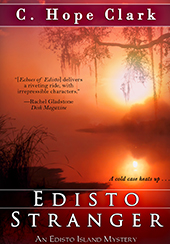 Some of us like puzzles, mysteries that challenge us to figure out who dun it. There are others who enjoy reading alternative histories. For instance, what if America had lost the Revolutionary War? Or what if Hitler had won his war? What if airplanes had never been invented. It makes for an interesting and thought provoking scenario. Then there’s fantasy or science fiction for those who’d like to imagine a very different world with fascinatingly different creatures. Some of us like puzzles, mysteries that challenge us to figure out who dun it. There are others who enjoy reading alternative histories. For instance, what if America had lost the Revolutionary War? Or what if Hitler had won his war? What if airplanes had never been invented. It makes for an interesting and thought provoking scenario. Then there’s fantasy or science fiction for those who’d like to imagine a very different world with fascinatingly different creatures.
 But to answer the question what draws people to different genres? What makes some folk love seafood while others prefer meat? What drives one man to become a Marine while another studies to become a heart doctor? Why does one person enjoy a Manhattan while someone else wants their whiskey straight up? Why does one person love the sea and another the mountains? Perhaps it’s how or where we grew up. Perhaps it’s what our parents revered, or perhaps it’s in rebellion. Perhaps it’s all about the things we covet or the things we treasure most. I don’t think it’s any one thing that draws a reader to one genre or another. It’s a combination of the things we enjoy, admire, covet, dream of or just want to experience between the pages of a book. But whatever you choose, READ ON. All the world is in a book. But to answer the question what draws people to different genres? What makes some folk love seafood while others prefer meat? What drives one man to become a Marine while another studies to become a heart doctor? Why does one person enjoy a Manhattan while someone else wants their whiskey straight up? Why does one person love the sea and another the mountains? Perhaps it’s how or where we grew up. Perhaps it’s what our parents revered, or perhaps it’s in rebellion. Perhaps it’s all about the things we covet or the things we treasure most. I don’t think it’s any one thing that draws a reader to one genre or another. It’s a combination of the things we enjoy, admire, covet, dream of or just want to experience between the pages of a book. But whatever you choose, READ ON. All the world is in a book.

 Be sure to check out what these authors write and read and why! Be sure to check out what these authors write and read and why!
A.J. Maguire
Anne de Gruchy
Heather Haven
Dr. Bob Rich
Helena Fairfax
Connie Vines
Rhobin Courtright
Fiona McGier
Kay Sisk
Rachel Kosinski
Saturday, June 24 2017
Our June Round Robin topic is: How do you go about developing your characters for a story? How much time do you spend or does it just happen in the writing process? What inspires it?
  Characters are more than a pretty face and a sexy body or a handsome, muscled man. Although physical traits certainly come to mind as a character comes to life, it’s the stuff below the surface that catches the imagination and fires the emotions. I recall reading Jeffrey Archer’s As The Crow Flies years ago at the same time my son was reading it. Although the hero of the story was a sympathetic character, the one that really stuck out was the villainess. We both marveled that the author had created a personality so compelling and complex that we hated her guts and wanted to strangle her. I still feel that way about her all these years later although I have not a clue what she looked like. Characters that are that compelling take time and effort to create. They don’t just happen. Finding the whole character is like peeling an onion - the deeper you go, the stronger it gets. Consider the movie When Harry Met Sally - On the surface, Sally is a pretty woman. But underneath she is what some men call "high maintenance"- she likes everything on the side. She's a romantic. She's a planner. Harry is an attractive guy with a wicked sense of humor. He's prosaic. He's afraid of commitments. He thinks men and women can't be friends because sex gets in the way. He's less disciplined and his life less structured. If you were the author of this story, you might ask why either of them was any of those things and the reasons would tell you even more about who they are. The deeper you dig into what makes a charcter tick, the more irresisible they become. Characters are more than a pretty face and a sexy body or a handsome, muscled man. Although physical traits certainly come to mind as a character comes to life, it’s the stuff below the surface that catches the imagination and fires the emotions. I recall reading Jeffrey Archer’s As The Crow Flies years ago at the same time my son was reading it. Although the hero of the story was a sympathetic character, the one that really stuck out was the villainess. We both marveled that the author had created a personality so compelling and complex that we hated her guts and wanted to strangle her. I still feel that way about her all these years later although I have not a clue what she looked like. Characters that are that compelling take time and effort to create. They don’t just happen. Finding the whole character is like peeling an onion - the deeper you go, the stronger it gets. Consider the movie When Harry Met Sally - On the surface, Sally is a pretty woman. But underneath she is what some men call "high maintenance"- she likes everything on the side. She's a romantic. She's a planner. Harry is an attractive guy with a wicked sense of humor. He's prosaic. He's afraid of commitments. He thinks men and women can't be friends because sex gets in the way. He's less disciplined and his life less structured. If you were the author of this story, you might ask why either of them was any of those things and the reasons would tell you even more about who they are. The deeper you dig into what makes a charcter tick, the more irresisible they become.
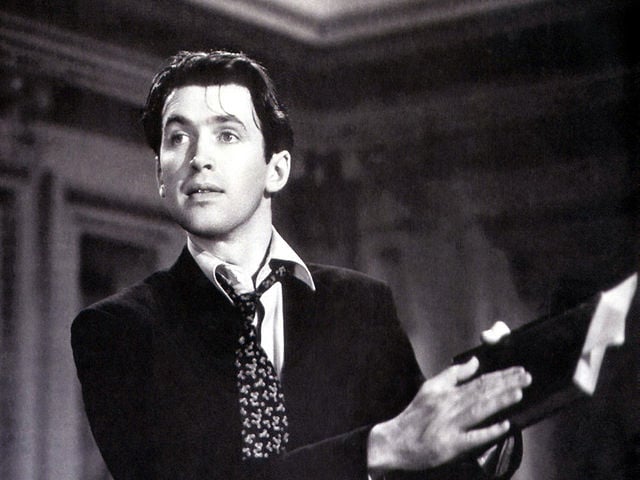 Perhaps because I’m a pantser and my stories are more character driven than plot driven, I spend quite a bit of time on character development before I even start the book. Although I’ll admit that my characters often surprise me as the story unfolds. Sometimes saying or doing something so unexpected that they catch even me off guard. But for the most part, I know my characters very well before I begin writing the book. Perhaps because I’m a pantser and my stories are more character driven than plot driven, I spend quite a bit of time on character development before I even start the book. Although I’ll admit that my characters often surprise me as the story unfolds. Sometimes saying or doing something so unexpected that they catch even me off guard. But for the most part, I know my characters very well before I begin writing the book.
 As I brainstorm my general plot and establish where I want to end up, I set aside time to write a detailed history for my main character or characters. Sometimes, if it’s important, I might even go back to their birth, but always at least to their teenage years. Because this document is never going to be seen by anyone but me, I just start typing, telling each of my main characters' stories as if I was describing a person I know well to someone else. I might ramble a bit and occasionally go back to something that might have happened to them earlier as it occurs to me, but by the time I have four or five single spaced pages, I know my character pretty well. I know them so well by now that if I put them in a situation, I know how they are going to react. The only time I skipped this step I realized as the story unfolded that the character was kind of bland and uninspiring. I was scrambling to fill in holes and figure out what he should be doing in every scene. I eventually had to stop writing and go back to fix him before I could complete the story. But knowing your character so well, you just know how they are going to react makes the writing so much easier. IN addition to the life story, I have a list of probing interview questions I ask my fictional characters. The answers are enlightening and if I don't know the answer, I need to dig a little deeper. As I brainstorm my general plot and establish where I want to end up, I set aside time to write a detailed history for my main character or characters. Sometimes, if it’s important, I might even go back to their birth, but always at least to their teenage years. Because this document is never going to be seen by anyone but me, I just start typing, telling each of my main characters' stories as if I was describing a person I know well to someone else. I might ramble a bit and occasionally go back to something that might have happened to them earlier as it occurs to me, but by the time I have four or five single spaced pages, I know my character pretty well. I know them so well by now that if I put them in a situation, I know how they are going to react. The only time I skipped this step I realized as the story unfolded that the character was kind of bland and uninspiring. I was scrambling to fill in holes and figure out what he should be doing in every scene. I eventually had to stop writing and go back to fix him before I could complete the story. But knowing your character so well, you just know how they are going to react makes the writing so much easier. IN addition to the life story, I have a list of probing interview questions I ask my fictional characters. The answers are enlightening and if I don't know the answer, I need to dig a little deeper.
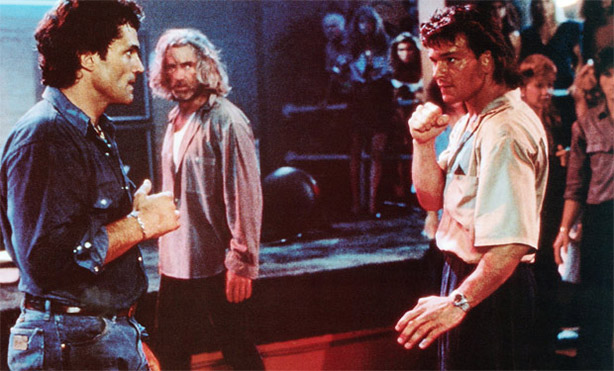 Knowing my character well helps me know how he fits into the action. For instance, if I’ve created a man who was a scrapper as a teenager, joined the Marines at 18 and drives race cars for sport, I’m pretty sure this guy is a total Alpha hero and if someone issues an insulting challenge in a bar he’s going to fight. On the other hand, I might have a hero who was a member of the debate team, got his undergrad and masters in social work and is currently a counselor, when I put him in the same bar and he’s confronted with the same insult, he’s more likely to try defusing the situation. But I don’t have to think about it, I just know how the two different personalities are going to react. But what if that beta hero had a sister who was raped by a sneering bully in a bar when she was in college? And what if the insult was to his girlfriend or wife? Maybe there would be no debate – his backstory would have him react very differently in spite of his beta personality. Knowing my character well helps me know how he fits into the action. For instance, if I’ve created a man who was a scrapper as a teenager, joined the Marines at 18 and drives race cars for sport, I’m pretty sure this guy is a total Alpha hero and if someone issues an insulting challenge in a bar he’s going to fight. On the other hand, I might have a hero who was a member of the debate team, got his undergrad and masters in social work and is currently a counselor, when I put him in the same bar and he’s confronted with the same insult, he’s more likely to try defusing the situation. But I don’t have to think about it, I just know how the two different personalities are going to react. But what if that beta hero had a sister who was raped by a sneering bully in a bar when she was in college? And what if the insult was to his girlfriend or wife? Maybe there would be no debate – his backstory would have him react very differently in spite of his beta personality.
 I also do a GMC (Goal-What do they want? Motivation – Why do they want it? Conflict – Why can’t they have it?) chart. If it’s a romance, I have two charts side by side on one page so I can compare how the hero’s goals might conflict with the heroine’s etc. Knowing what your characters want at every step keeps your story moving in the right direction and helps to avoid useless side trips and go-no-where chapters. I also do a GMC (Goal-What do they want? Motivation – Why do they want it? Conflict – Why can’t they have it?) chart. If it’s a romance, I have two charts side by side on one page so I can compare how the hero’s goals might conflict with the heroine’s etc. Knowing what your characters want at every step keeps your story moving in the right direction and helps to avoid useless side trips and go-no-where chapters.
 Some of the tools I use to begin shaping my character include a birth order chart. Although birth order has much deviation and exceptions, there are a number of interesting character traits that can be influenced by birth order. And it’s a place to begin. Is your character a first born? Or only child? Then maybe he or she is a bit of a perfectionist and he or she will generally be a good leader, highly motivated and responsible. Second borns can be adaptable and independent and prefer compromise over conflict. They make good mediators. Last born kids are social, outgoing, manipulative and often spoiled. But it also depends on gender. A first born son with an older sister will be different than a second born, second son. If you’re into it, Zodiac signs might give you ideas about your character as well. Another way to find flaws and strengths in your characters is to give them a trauma from their growing up years. Take Some of the tools I use to begin shaping my character include a birth order chart. Although birth order has much deviation and exceptions, there are a number of interesting character traits that can be influenced by birth order. And it’s a place to begin. Is your character a first born? Or only child? Then maybe he or she is a bit of a perfectionist and he or she will generally be a good leader, highly motivated and responsible. Second borns can be adaptable and independent and prefer compromise over conflict. They make good mediators. Last born kids are social, outgoing, manipulative and often spoiled. But it also depends on gender. A first born son with an older sister will be different than a second born, second son. If you’re into it, Zodiac signs might give you ideas about your character as well. Another way to find flaws and strengths in your characters is to give them a trauma from their growing up years. Take  that last born, make him the only boy whose father dies when he’s only 11 years old, and suddenly he’s no longer so spoiled or carefree. He’s become the man of the family at a young age and that sense of responsibility will carry over into his adulthood. Another tool in my box is a book called Careers for Your Characters by Obstfeld and Neumann. If you already know what career your character will have, check out the traits that make a person good at that job, or bad if you want your character to struggle. If you have some idea of your character’s traits, this is a great way to figure out what his or her profession should be. that last born, make him the only boy whose father dies when he’s only 11 years old, and suddenly he’s no longer so spoiled or carefree. He’s become the man of the family at a young age and that sense of responsibility will carry over into his adulthood. Another tool in my box is a book called Careers for Your Characters by Obstfeld and Neumann. If you already know what career your character will have, check out the traits that make a person good at that job, or bad if you want your character to struggle. If you have some idea of your character’s traits, this is a great way to figure out what his or her profession should be.
 And there is always people-watching. Never waste time in a doctor's office, in line at the grocery store or waiting for your flight at the airport. This is a great opportunity to watch how people act. How they cope with fussy kids, or delays and waiting lines. How people interact, both with professional staff they deal with and with the family and friends around them. You can get a few hints about their personality from their actions, but don't forget there's a lot you can only wonder about. If there is a woman standing at the window weeping, is she crying because her boyfriend just left for college? Or is she waiting for her husband's casket to be taken off the plane? Is the man yelling at the counter clerk because his flight was canceled a boor, or is his daughter getting married several states away and now he won't get there in time? If a parent is short tempered with a child it might be that the child is a spoiled brat, or the mother is sick and off her game, or maybe both of them are struggling with a trauma you can't see. But people watching and wondering why is another great way to get ideas for your characters. And there is always people-watching. Never waste time in a doctor's office, in line at the grocery store or waiting for your flight at the airport. This is a great opportunity to watch how people act. How they cope with fussy kids, or delays and waiting lines. How people interact, both with professional staff they deal with and with the family and friends around them. You can get a few hints about their personality from their actions, but don't forget there's a lot you can only wonder about. If there is a woman standing at the window weeping, is she crying because her boyfriend just left for college? Or is she waiting for her husband's casket to be taken off the plane? Is the man yelling at the counter clerk because his flight was canceled a boor, or is his daughter getting married several states away and now he won't get there in time? If a parent is short tempered with a child it might be that the child is a spoiled brat, or the mother is sick and off her game, or maybe both of them are struggling with a trauma you can't see. But people watching and wondering why is another great way to get ideas for your characters.
 Sometimes you will find traits all fall together in a nice tidy package. Other times your character will be a little out of the box. In my current work in progress, I have a beta hero. An only child whose mom died when he was a kid. Yet he’s a cop. Most cops tend to have alpha personalities so this is somewhat of an anomaly. My guy is confident and good with people, but he’s also a good mediator – why? He grew up next door to a family of boys that he hung out with. He was in the middle of the pack in age and their mom took him under her wing when his mother died. So he has some traits of being only child and some of being a middle child due to his unusual situation growing up. And he’s a cop in a small town where everyone knows everyone and crime is low. He doesn’t have to be a gung-ho alpha personality to thrive and do well, but it’s good to know that about him before I start writing. Eventually he might find himself confronting that bully in the bar and he will have to act, perhaps in a way he would not normally react. In a book I just read recently there was a totally alpha hero. He was a star football player in high school, popular with the girls, confident, outgoing, a great leader. A first born son. And a Marine. All very heroic things, but what made that character really interesting was the emotional trauma he came home with after being downrange for four consecutive tours of duty in a war zone. Trauma that broke everything that had made him who he was before he went off to fight. He is a character the reader is weeping for even before they get past the first chapter. What makes that happen is the careful construction of who he was and is before the story even starts. Sometimes you will find traits all fall together in a nice tidy package. Other times your character will be a little out of the box. In my current work in progress, I have a beta hero. An only child whose mom died when he was a kid. Yet he’s a cop. Most cops tend to have alpha personalities so this is somewhat of an anomaly. My guy is confident and good with people, but he’s also a good mediator – why? He grew up next door to a family of boys that he hung out with. He was in the middle of the pack in age and their mom took him under her wing when his mother died. So he has some traits of being only child and some of being a middle child due to his unusual situation growing up. And he’s a cop in a small town where everyone knows everyone and crime is low. He doesn’t have to be a gung-ho alpha personality to thrive and do well, but it’s good to know that about him before I start writing. Eventually he might find himself confronting that bully in the bar and he will have to act, perhaps in a way he would not normally react. In a book I just read recently there was a totally alpha hero. He was a star football player in high school, popular with the girls, confident, outgoing, a great leader. A first born son. And a Marine. All very heroic things, but what made that character really interesting was the emotional trauma he came home with after being downrange for four consecutive tours of duty in a war zone. Trauma that broke everything that had made him who he was before he went off to fight. He is a character the reader is weeping for even before they get past the first chapter. What makes that happen is the careful construction of who he was and is before the story even starts.
 Once you’ve created strong characters the reader can relate to and care about, then it’s time to explore how this character is going to grow and develop as the story unfolds. What is called the character arc. Character arc is critical to making a story memorable and leaving an indelible picture of that character in the readers’ minds. Unless they’re Jack Reacher, characters have to confront their demons and grow emotionally to leave a lasting impression, all the while facing whatever mischief the author has thrown in their way as story arc. Back to that bar with the bully. If we have a Jack Reacher type guy, he’ll make the bully wish he’d chosen a more Once you’ve created strong characters the reader can relate to and care about, then it’s time to explore how this character is going to grow and develop as the story unfolds. What is called the character arc. Character arc is critical to making a story memorable and leaving an indelible picture of that character in the readers’ minds. Unless they’re Jack Reacher, characters have to confront their demons and grow emotionally to leave a lasting impression, all the while facing whatever mischief the author has thrown in their way as story arc. Back to that bar with the bully. If we have a Jack Reacher type guy, he’ll make the bully wish he’d chosen a more 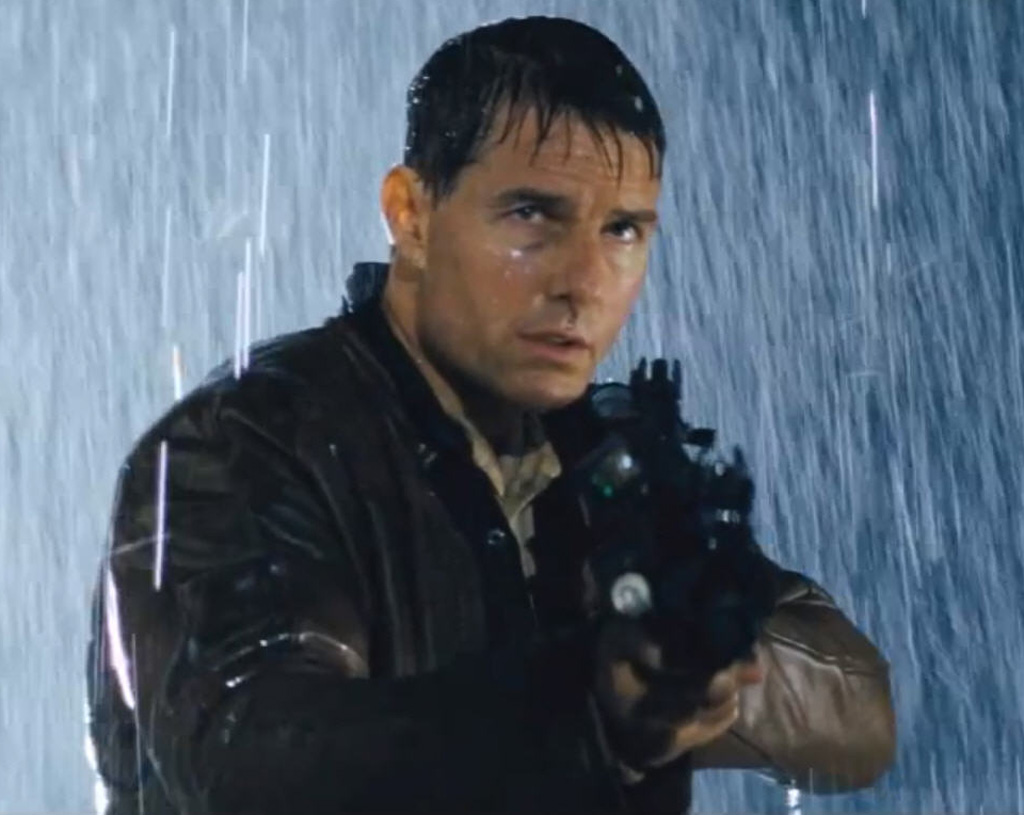 vulnerable target and barely raise a sweat. He definitely won’t think twice about it afterward. But how memorable is that interaction? But if your hero is suffering from PTSD and has flashbacks of violence and the toll it takes on the human psyche, he might be more mentally impacted even though he was easily able to summon the courage and strength to defend himself. And the debate team captain who never did anything physical in his life? He might have to dig deep for courage to stand up to the bully in the first place. He might know he’s totally outclassed and sure that he’s going to get hurt, but if he’s defending someone weaker than himself will he summon that courage? And if he does, and succeeds, think of the character growth he’ll experience. vulnerable target and barely raise a sweat. He definitely won’t think twice about it afterward. But how memorable is that interaction? But if your hero is suffering from PTSD and has flashbacks of violence and the toll it takes on the human psyche, he might be more mentally impacted even though he was easily able to summon the courage and strength to defend himself. And the debate team captain who never did anything physical in his life? He might have to dig deep for courage to stand up to the bully in the first place. He might know he’s totally outclassed and sure that he’s going to get hurt, but if he’s defending someone weaker than himself will he summon that courage? And if he does, and succeeds, think of the character growth he’ll experience.
 Then there are the walk-ons. You're the author and you already have a full cast of characters, well developed, sympathetic or antagonist, and the story is plotted out carefully, but every once in awhile a character will suddenly appear in a story and take on surprising strength. He or she won’t be the main character and they might have only a minor role, but they intrigue you, almost daring you to explore them more fully. Often these walk-ons turn into a follow-on book. They capture the author’s heart and imagination so completely their story just has to be told later. Often these characters appear because there was an unexpected need for a character to fill a role not explored while the story was being plotted. Sometimes they show up as a foil for another character. And while they might not have as much time and attention in development, the author does need to step back and consider the character and what he or she needs, wants or has experienced in the past that brought them on the scene in the first place. Then there are the walk-ons. You're the author and you already have a full cast of characters, well developed, sympathetic or antagonist, and the story is plotted out carefully, but every once in awhile a character will suddenly appear in a story and take on surprising strength. He or she won’t be the main character and they might have only a minor role, but they intrigue you, almost daring you to explore them more fully. Often these walk-ons turn into a follow-on book. They capture the author’s heart and imagination so completely their story just has to be told later. Often these characters appear because there was an unexpected need for a character to fill a role not explored while the story was being plotted. Sometimes they show up as a foil for another character. And while they might not have as much time and attention in development, the author does need to step back and consider the character and what he or she needs, wants or has experienced in the past that brought them on the scene in the first place.
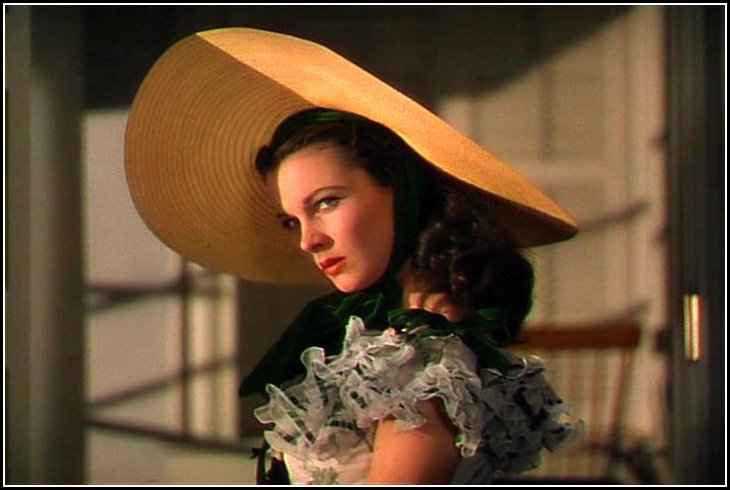  
Scarlette O'Hara Jamie Fraser Jay Gatsby
In my opinion character development is essential to making a great story that captivates readers. Above are three characters with personalties so clear and strong they enjoy enduring fame. Think of the characters in books you read long ago that are still vibrant and alive in your memory. None of them were two dimensional. All had detailed back stories and complicated personalities, loves, hates, desires, dreams, failures and triumphs. That’s what makes them memorable.
Check out how these authors create their characters:
 A.J. Maguire A.J. Maguire
Victoria Chatham
Marci Baun
Judith Copek
Rachael Kosinski
Diane Bator
Dr. Bob Rich
Beverley Bateman
Anne Stenhouse
Marie Laval
Rhobin Courtright
Connie Vines
Margaret Fieland
Fiona McGier
Tuesday, June 13 2017
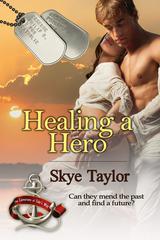 A great chance to pick up book #4 in the Camerons of Tide's Way series - it's on sale through June 15th for just $1.99 on all e-book platforms. A great chance to pick up book #4 in the Camerons of Tide's Way series - it's on sale through June 15th for just $1.99 on all e-book platforms.
Philip Cameron is a career Marine. He's had his share of losses both physically and emotionally, but the Marines has always been there to give him balance and a sense of purpose. Except now he's been sidelined by injuries that could even end his career . . . unless the new therapist they are sending him to can work a miracle. Imagine his shock when he walks into her therapy room and discovers she's the woman who broke his heart fourteen years ago and crushed all his hopes of having a family of his own. How on earth is he going to get through the next few months as if none of that ever happened?
    
To read excerpts from Healing a Hero, click here
Tuesday, June 06 2017
 My newest book and first historical romance has just been released on all e-book platforms. It’s a time travel romance, set during the beginnings of the American War for Independence and several people along the way to getting it published have asked me what inspired me to write this particular book. So here’s the answer to that query. My newest book and first historical romance has just been released on all e-book platforms. It’s a time travel romance, set during the beginnings of the American War for Independence and several people along the way to getting it published have asked me what inspired me to write this particular book. So here’s the answer to that query.
Back when I lived on the Maine coast, I came across a book by Bill Caldwell, The Islands of Maine, Where America Really Began. It was a fascinating book about the earliest European settlers in New England. From my front yard I could see one of those islands mentioned in Mr. Caldwell’s book. Historian Charles K. Bolton also wrote of this island in his book, The Real Founders of New England, noting that four hundred years ago, “Here was the chief maritime port of New England. Here was the rendezvous for English, French and Dutch ships crossing the Atlantic. Here men bartered with one another and with Indians, drank, gambled, quarreled and sold indentured servants.” Four hundred of years ago, two hundred years before the Pilgrims arrived in Plymouth on the Mayflower there were “wharves, salting houses (for fish) sheds, boatyards, taverns and perhaps a bawdy house or two for sailors coming ashore after a long Atlantic Crossing” clustered on this tiny island called Damariscove.
Edward Winslow, the Pilgrim representative who came begging for supplies in 1622, wrote in his journal that he and his group were graciously welcomed with “Kind entertainment and good respect and a willingness to supply our needs . . . and that there were 30 ships of sail anchored in the harbor.” Damariscove Island is only two miles long and not more than a quarter mile wide, yet, in 1675 three hundred refugees fleeing Indian wrath sheltered here. A century later, just before the start of the Revolutionary War a British Naval captain put ashore here and stole 75 sheep to feed his sailors before turning south to burn present day Portland to the ground.
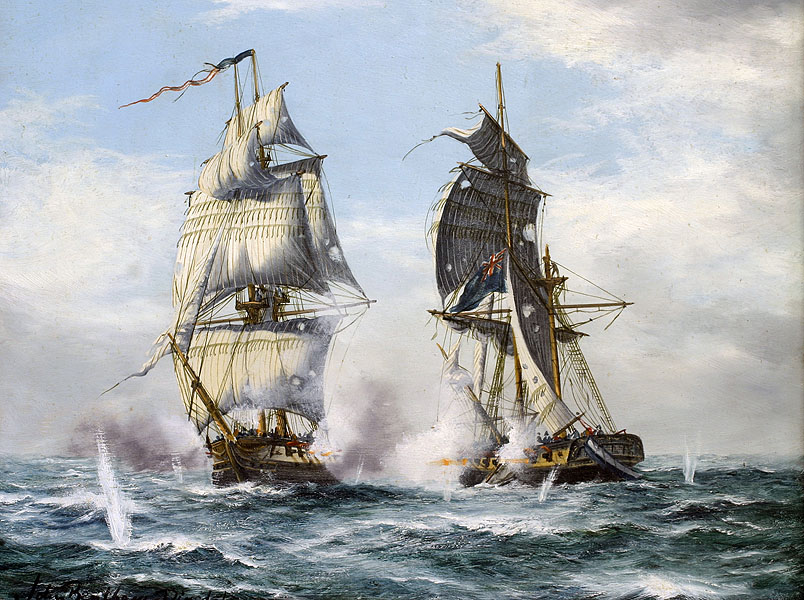 During the war of 1812 (the Second War of Independence) the HMS Boxer and the USS Enterprise fought a famous sea battle so close to the island that the inhabitants of Damariscove watched the fight from their own shore. (Just another bit of interesting history, the captain of HMS Boxer, Samuel Blyth who was just 29 years old, and the American Lieutenant William Burrows age 28 who captained the USS Enterprise were both killed in the battle and were buried side by side in a cemetery in Portland, Maine with full military honors.) During the war of 1812 (the Second War of Independence) the HMS Boxer and the USS Enterprise fought a famous sea battle so close to the island that the inhabitants of Damariscove watched the fight from their own shore. (Just another bit of interesting history, the captain of HMS Boxer, Samuel Blyth who was just 29 years old, and the American Lieutenant William Burrows age 28 who captained the USS Enterprise were both killed in the battle and were buried side by side in a cemetery in Portland, Maine with full military honors.)
Is it any wonder that I was fascinated with this scrap of land I could see from my front yard? So one day, my dad, my daughter and I sailed out to Damariscove one glorious summer day to explore. As I stood gazing down at the narrow harbor Winslow’s words came back to me, and I marveled that 30 sailing ships big enough to cross the Atlantic could have fit in that long gut of bright blue water. There were, just as Bill Caldwell had described, many old granite foundations scattered on the high ground above the harbor and as I stood on the cornerstone of one of the largest foundations, I tried to imagine this island full of people and what life might have been like here in an era when brave young captains ventured forth to harass the British Navy or carry ships filled with salted cod and furs across the Atlantic to Europe. There were tales of a ghost who roamed the island with his faithful dog, but of course there was no sign of him. Or any of the other souls who had called this place home for hundreds of years.
 Then the rock beneath my feet wobbled. I jumped back alarmed, not wanting to tumble into the long abandoned cellar hole. But as I watched a small shower of loose gravel and dirt tumble into the daisy-lined hole the seemingly random thought came to me, “What if I fell in, hit my head and was knocked unconscious, but when I came to my senses again there were sturdy floor joists over my head and a door enclosing me in a basement filled with the sorts of things kept in basements a long time ago?” As we climbed back in our dinghy and headed back to the sailboat, that question continued to rattle around in my head and that was the beginning of my story, Iain’s Plaid. I hope you enjoy reading it as much as I enjoyed imagining it and committing that tale to paper. Then the rock beneath my feet wobbled. I jumped back alarmed, not wanting to tumble into the long abandoned cellar hole. But as I watched a small shower of loose gravel and dirt tumble into the daisy-lined hole the seemingly random thought came to me, “What if I fell in, hit my head and was knocked unconscious, but when I came to my senses again there were sturdy floor joists over my head and a door enclosing me in a basement filled with the sorts of things kept in basements a long time ago?” As we climbed back in our dinghy and headed back to the sailboat, that question continued to rattle around in my head and that was the beginning of my story, Iain’s Plaid. I hope you enjoy reading it as much as I enjoyed imagining it and committing that tale to paper.
Available at: Amazon, B&N, Kobo, Google, iBooks
To get a sneak peak - here's an excerpt from Iain's Plaid
Saturday, May 27 2017
 May’s Round Robin topic is: Has so much emphasis been placed by readers and writers groups, publishers, reviewers, etc. on authors to have a spectacular opening page/chapter that the rest of the story gets left behind? What are your thoughts and experiences with this? May’s Round Robin topic is: Has so much emphasis been placed by readers and writers groups, publishers, reviewers, etc. on authors to have a spectacular opening page/chapter that the rest of the story gets left behind? What are your thoughts and experiences with this?
We live in a world of sound bytes. We are bombarded daily with 60 second attention grabs, 30 second blurbs, even 15 second demands for our attention. Even good grammar has been abandoned in the name of quick, easy and attention getting when it comes to texting and other forms of communication. At the same time, our lives become more hectic and demanding. Remember the days when finding a hand written letter in the mailbox filled you with a wonderful feeling of anticipation? Almost no one writes letters by hand any more, or even types them. And far too few even bother to write notes to say thank you and let someone know how much their thought or gift or time mattered to us. We’ve grown to rely on email and texting or facebook and other social media for all our interaction with others not done face to face, and the geniuses who create our gadgets find ever more ways to make sure we are never OUT of touch. Even good old fashioned pick up the phone and call a friend to  chat has given way to a text full of abbreviations and text jargon. chat has given way to a text full of abbreviations and text jargon.
This need to grab instant attention has moved into our writing as well. With thousands of books being produced every day, every  one of them is clamoring for your attention and you have only so much time to read blurbs and make a choice. So is it any wonder that so much emphasis is placed on getting into the action IMMEDIATELY? The "HOOK?" We want our readers’ hearts pounding and their fingers twitching to turn the page before they’ve even finished the first paragraph, or better yet, the first sentence. one of them is clamoring for your attention and you have only so much time to read blurbs and make a choice. So is it any wonder that so much emphasis is placed on getting into the action IMMEDIATELY? The "HOOK?" We want our readers’ hearts pounding and their fingers twitching to turn the page before they’ve even finished the first paragraph, or better yet, the first sentence.
I’ve been to the workshops. I’ve heard all the persuasive arguments. My first book to be published begins with: 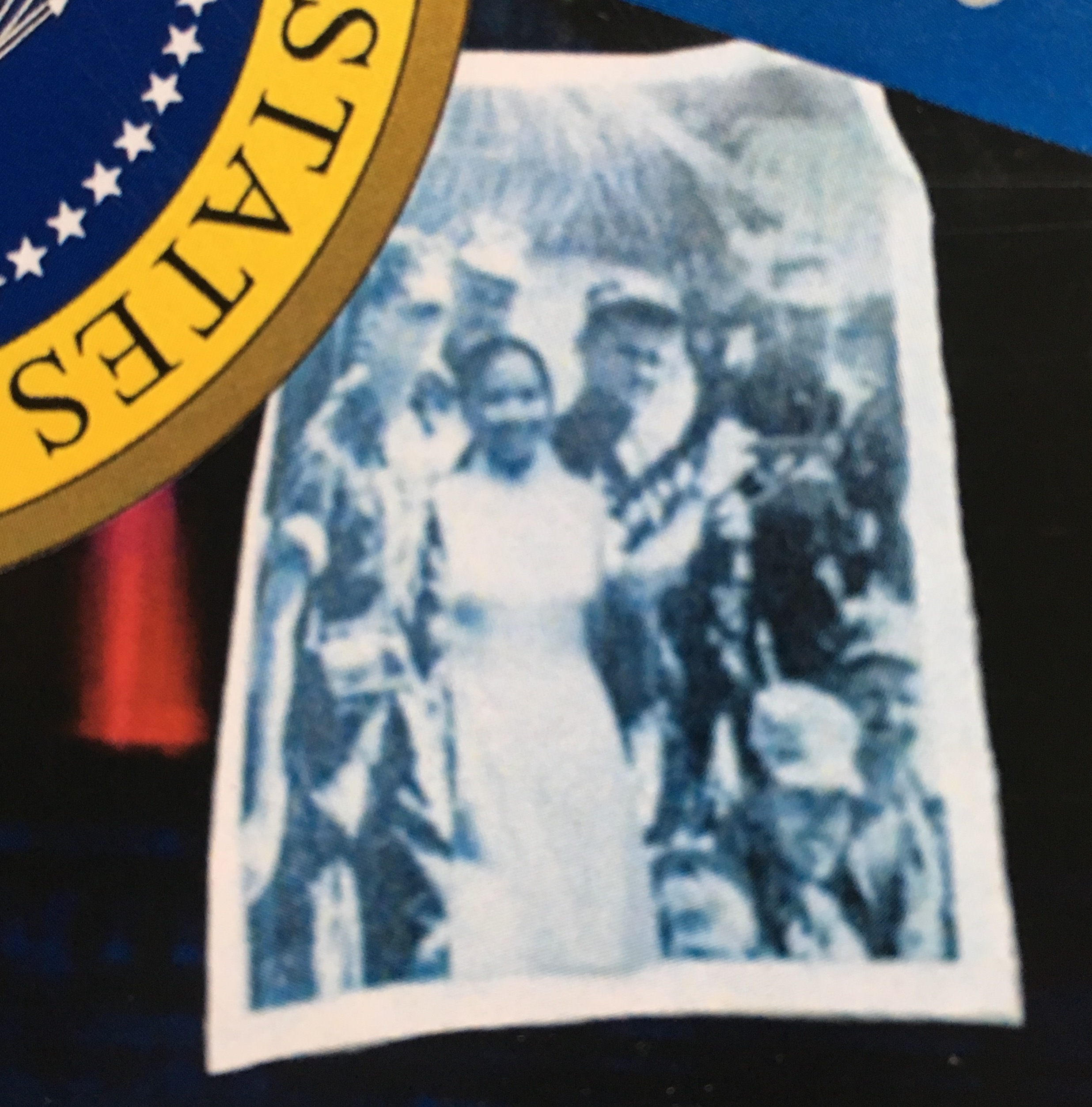 “He gaped at the tattered photograph that had just been slipped into his hand. His heart raced, and Senator Matt Steele, Democratic candidate for president, halted so abruptly his Secret Service agent bumped into him.” I was following the prescription, doing my best to grab the reader’s attention and throw them into the fray from the very first words. But no one has any idea where Matt Steele is, who he is, what he believes in, what he stands for. All we know here is that someone gave him a photograph that has caused some kind of alarm. I’m hoping, of course, that whoever picked that book up and opened it to the first page is going to be so instantly drawn into the story that they will buy my book. “He gaped at the tattered photograph that had just been slipped into his hand. His heart raced, and Senator Matt Steele, Democratic candidate for president, halted so abruptly his Secret Service agent bumped into him.” I was following the prescription, doing my best to grab the reader’s attention and throw them into the fray from the very first words. But no one has any idea where Matt Steele is, who he is, what he believes in, what he stands for. All we know here is that someone gave him a photograph that has caused some kind of alarm. I’m hoping, of course, that whoever picked that book up and opened it to the first page is going to be so instantly drawn into the story that they will buy my book.
But now think back to some of the best books you ever read that were published say 50 years ago or more. The ones that have stayed strong in your memory and probably still reside on your bookshelf. Did they begin with a bang, throwing you, the reader, and the protagonist into harm’s way in the first paragraph? Not so much.
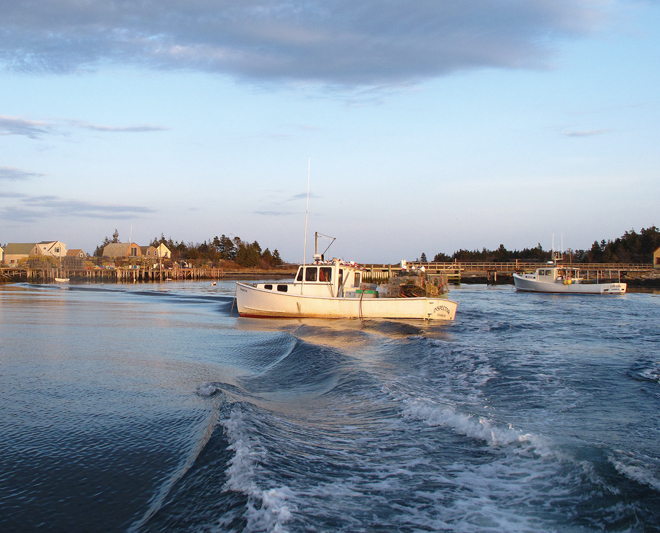 One of my all time favorite novels, High Tide at Noon was first published before I was even born. The copy on my shelf has frail pages that I turn reverently and every time I am drawn back into that world. It begins like this: One of my all time favorite novels, High Tide at Noon was first published before I was even born. The copy on my shelf has frail pages that I turn reverently and every time I am drawn back into that world. It begins like this:
“The Island lay very still under the clear golden light of a mid-summer noon. The whole world was bathed in a windless silence, steeped in warmth. Yet the air, alive with a peculiar clarity, had a sparkling edge.
Here in the great bay the sea held a blue that shook the heart, but the sky laid hold on you in a different way. The islands rose from one blueness and touched another, and in the glowing light they shone white and creamy and tawny and red, crested darkly with spruce. On the farthest northern horizon the mountains billowed along the sky in richly tender curves, grape-blue with distance. It was a day to drink like wine, and feel its intoxication seep through your heart and soul.
The dragger was incongruously dingy and loud in all this brilliant silence. Bound for fertile grounds far to the east, if had swerved from its course to enter the harbor. It was such a quiet harbor that when the engine stopped, and the boat slid noiselessly toward the wharf, the silence beat against the woman’s eardrums. Or was it her heart that hammered so?”
(Copyright: Elizabeth Ogilvie 1944)
I wonder if that book would make it past the acquiring editor’s desk today. But think of the picture it paints. The reader can close their eyes and “feel” like they are there in this place and time. If they have been there, they recognize it instantly. If it’s a place they’ve never been they can begin to imagine it before the action starts. Before the protagonist wonders if the pulsing feeling is all around her or inside her.
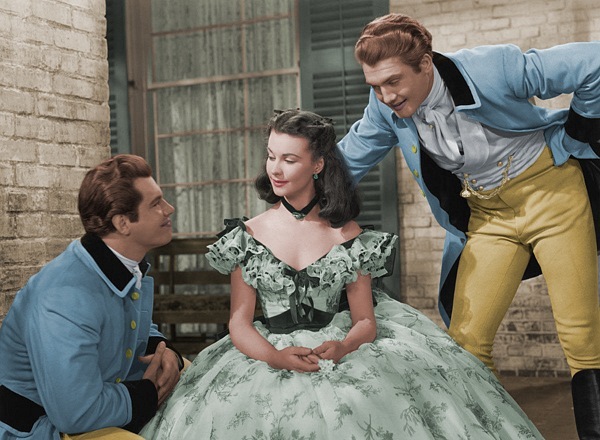 The same might be said of the opening to Gone With the Wind – where we are treated to an entire chapter being introduced to Scarlett sitting on a porch with two handsome rascals and getting a feel for their world, the era and the ambiance before we discover at the beginning of chapter two that Scarlett is devastated by the news that Ashley is marrying someone else. Even when that book first came out in 1936 our world was far removed from the world of Scarlett O’Hara, but in that first chapter we are introduced to her world, her life and her experience, the ambiance of Tara and the old south and even the hint of war on the horizon. Would we want it any other way? The same might be said of the opening to Gone With the Wind – where we are treated to an entire chapter being introduced to Scarlett sitting on a porch with two handsome rascals and getting a feel for their world, the era and the ambiance before we discover at the beginning of chapter two that Scarlett is devastated by the news that Ashley is marrying someone else. Even when that book first came out in 1936 our world was far removed from the world of Scarlett O’Hara, but in that first chapter we are introduced to her world, her life and her experience, the ambiance of Tara and the old south and even the hint of war on the horizon. Would we want it any other way?
A lot of the books I enjoy are action adventure and involve men and women who are skilled in worlds I will never begin to know. The more I read, the more I become familiar with the tactics, the weapons, the ways of communicating, electronically, in dialog and by hand signals, the terrain of far away places, and the grueling training they are subjected to before they end up on these types of teams. But that feel for their world is gained not just through the book I’m currently reading, but all those I read before it. I wonder if I would have come to an appreciation for the lives and dedication of these men and women sooner had the first book I read begun more like Gone With the Wind with an introduction to their world of dedication and hard charging daring do? Maybe not, I am living in a world of sound bytes like everyone else, but who knows.
 So, is there a happy medium between throwing the reader’s heart into overdrive in the first paragraph and taking an entire chapter to introduce them to a world they’ve never been in before? My current editor thinks there is. When I submitted my book Iain’s Plaid (Due out on June 2nd) to her she asked me to consider writing a prologue. I’d been so intent on that heart-pounding start, putting my heroine into harm’s way on that first page that I’d left the introduction to her world to be filtered in later on, bit by bit. Since I am traditionally published, I wrote that prologue for my editor and she was pleased. And now that it’s part of the book, I like it, too. I like that my reader knows what makes my heroine tick before I throw her under the bus, so to speak. My reader knows right from the beginning why she’s come to this unusual place where the tale begins and what she hopes to find. So, is there a happy medium between throwing the reader’s heart into overdrive in the first paragraph and taking an entire chapter to introduce them to a world they’ve never been in before? My current editor thinks there is. When I submitted my book Iain’s Plaid (Due out on June 2nd) to her she asked me to consider writing a prologue. I’d been so intent on that heart-pounding start, putting my heroine into harm’s way on that first page that I’d left the introduction to her world to be filtered in later on, bit by bit. Since I am traditionally published, I wrote that prologue for my editor and she was pleased. And now that it’s part of the book, I like it, too. I like that my reader knows what makes my heroine tick before I throw her under the bus, so to speak. My reader knows right from the beginning why she’s come to this unusual place where the tale begins and what she hopes to find.
I don’t really have an answer to this question. But I will offer this: If a tale is well written, and the characters compelling, the story will captivate the reader however it begins. So, my advice to readers is to spend less time worrying about a hook in the first sentence and more time crafting a story that will stay in your readers heart and imagination long after they’ve put it down, because if they were captivated, they will tell others and that first sentence won’t be so all consumingly important.
But I'm just one author - check out what all these great authors have to say...
A.J. Maguire
Dr. Bob Rich
Anne Stenhouse
Helena Fairfax
Marci Baun
Victoria Chatham
Rachael Kosinski
Rhobin Courtright
Connie Vines
Beverly Bateman
|